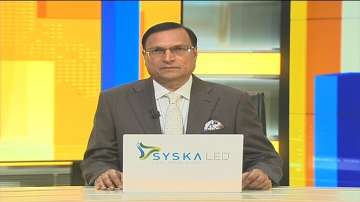Opinion | States should reduce VAT on petrol, diesel, after Modi reduced excise duty
This is a move that will surely give relief to consumers, farmers and all sections of society. Along with the excise duty cut, the Centre appealed to all state governments to reduce VAT on petrol and diesel accordingly.

The reduction in central excise duty on petrol and diesel by Rs 5 and Rs 10 per litre on Wednesday night is a Diwali gift for the people from Prime Minister Narendra Modi. The decision taken only a few hours after the Prime Minister returned from a hectic and successful visit to G20 and COP summits, shows his ability of being constantly on the job even after busy schedules.
This decision also reflects the Prime Minister’s sensitivity towards the problems of common people and his ability to take decisions in real time.
This is a move that will surely give relief to consumers, farmers and all sections of society. Along with the excise duty cut, the Centre appealed to all state governments to reduce VAT on petrol and diesel accordingly. Nine NDA-ruled state immediately announced cuts in VAT on petrol and diesel, late on Wednesday night.
The UP government led from the front by slashing VAT on both petrol and diesel making them cheaper by Rs 12 per litre. VAT on petrol and diesel was reduced by Rs 7 and Rs 2 respectively in UP. Similarly, Uttarakhand, Gujarat, Bihar, Karnataka, Assam, Tripura, Goa and Manipur also reduced VAT on both petrol and diesel giving relief to the common people.
The Centre said this cut in excise duty was done “in order to give a further fillip to the economy. Today’s decision is expected to further spur the overall economic cycle”. Due to a global upsurge in crude oil prices, there has been increase in domestic prices of petrol and diesel in recent weeks and this has exerted inflationary pressure, a press release said. The Centre said, the move will boost consumption and keep inflation low, thus helping the poor and middle classes.
The Centre said, “The reduction in excise duty on diesel will come as a boost to farmers during the upcoming Rabi season. The Indian farmers, have, through their hard work, kept the economic growth momentum going even during the lockdown phase.”
The ball is now in the court of non-BJP parties. The fact is: many opposition-ruled state governments that pretend to take care of the poor, middle class and farmers, have kept VAT rates on petrol and diesel in their states too high. These opposition parties have been criticizing the Centre and had been demanding lowering of fuel prices. Now they will have to walk the talk.
For example, VAT on petrol in Delhi, ruled by AAP government is 30 pc, in Mumbai it is 26 pc plus additions Rs 10.12p per litre under Shiv Sena-led government, in Kolkata it is 25 pc or Rs 13.12p per litre, whichever is higher, under TMC rule, in Hyderabad it is as high as 35.20 pc under TRS rule. In Congress-ruled Rajasthan, VAT rates are as high as 36 per cent plus Rs 1,500 per kilolitre. VAT on diesel is similarly too high in opposition-ruled states. Compare this with the VAT rates in BJP-ruled states like Gujarat where the VAT rate is only 20 per cent. On Wednesday night, the Gujarat government reduced the VAT rate further.
The moot point is that if state governments reduce VAT on petrol and diesel, fuel can become cheaper. VAT rates on fuel are on the higher side in states ruled by non-BJP governments.
To give you a concise picture, the base prices of petrol and diesel are only Rs 47.28 and Rs 49.36 per litre respectively. Adding 28p to 30 p as freight charge, the price to dealers, excluding VAT and excise, comes to Rs 47.58 and Rs 49.64 for petrol and diesel respectively. After reduction of Central excise duty on Wednesday night, the new excise rates are Rs 27.90 and Rs 21.80 for petrol and diesel. Dealer commission comes to Rs 3.90 and Rs 2.61p for petrol and diesel. VAT rates differ from state to state and are in the range of Rs 14.37 to Rs Rs 25.31 per litre on diesel and petrol. The consumer ends up paying Rs 109.69 and Rs 98.42 in Delhi for petrol and diesel respectively.
The step taken to reduce Central excise duty on petrol and diesel, therefore, is a right step in the right direction by Prime Minister Modi. This is likely to give a fillip to our economy, that is already booming after the slowdown due to pandemic since April last year. A happy Diwali to all of you, on this bright note.
Aaj Ki Baat: Monday to Friday, 9 PM
India's Number One and the most followed Super Prime Time News Show 'Aaj Ki Baat – Rajat Sharma Ke Saath' was launched just before the 2014 General Elections. Since its inception, the show is redefining India's super-prime time and is numerically far ahead of its contemporaries.